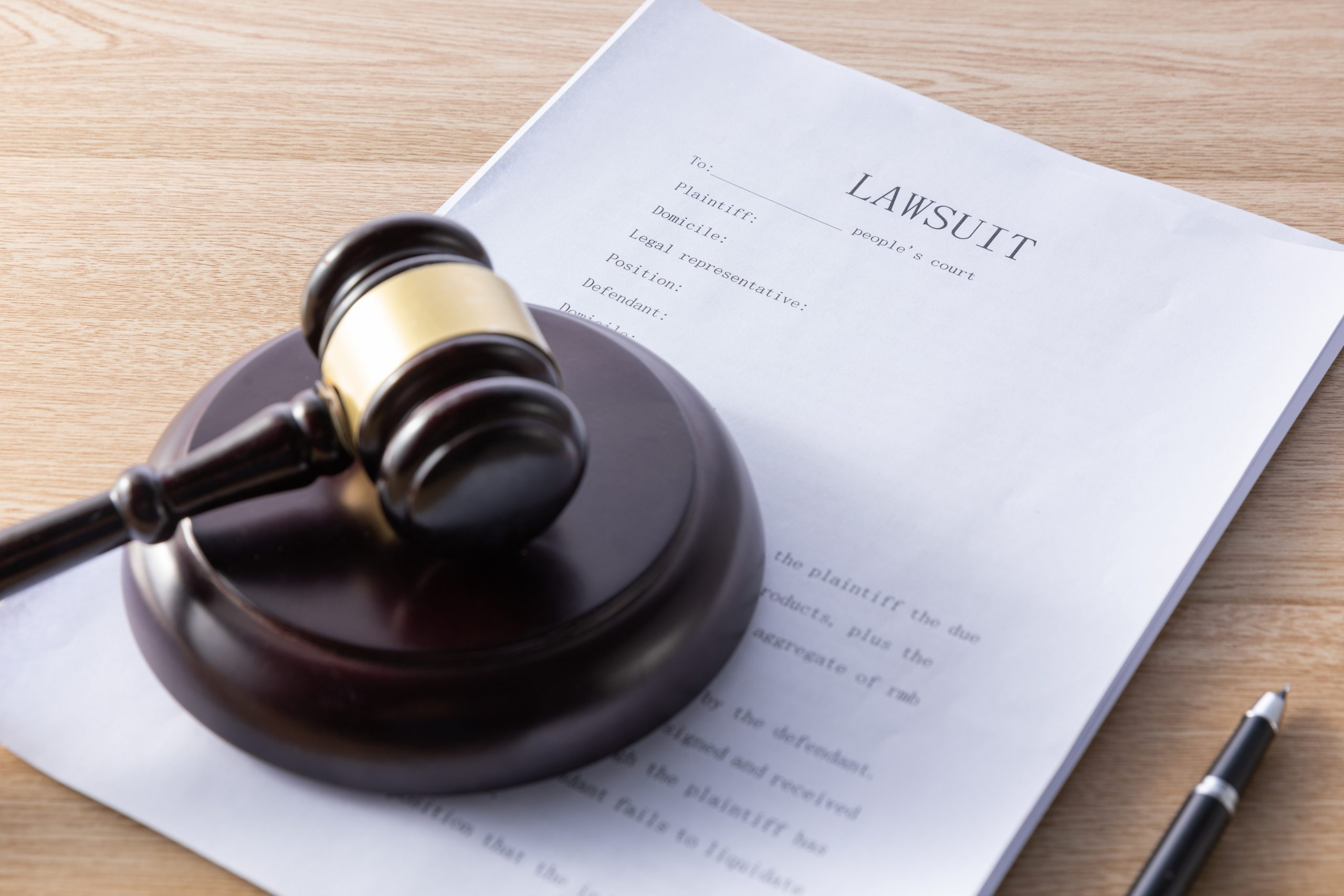Introduction
In the realm of law, attorneys often find themselves confronted with the ethical dilemma of representing controversial clients. These clients may be individuals or organizations whose actions or beliefs are widely disputed or considered socially unacceptable. The question arises: Should attorneys take on such clients, and if they do, what are the ethical considerations they must navigate? This article delves into the complex realm of representing controversial clients, exploring the underlying principles of legal ethics and providing guidance to attorneys facing this delicate and challenging situation.
Balancing advocacy and ethical responsibilities for controversial clients.
As an attorney, representing controversial clients can pose a difficult ethical challenge. On one hand, attorneys have a professional responsibility to provide competent representation to their clients, regardless of their beliefs or opinions. On the other hand, attorneys also have an ethical obligation to uphold the integrity of the legal system and promote justice. So how do attorneys balance these competing interests?
One way to navigate this grey area is by seeking the counsel of other lawyers. Building a contact list of lawyers who have experience representing controversial clients or who have expertise in the particular legal issue at hand can provide valuable insights and guidance.
But ultimately, it is up to the attorney to carefully consider the ethical implications of taking on a controversial client. It is important to evaluate whether the client’s beliefs or actions conflict with the attorney’s own personal values and professional obligations. If so, the attorney should consider declining the representation or finding alternative solutions that are in line with their ethical responsibilities.
At the same time, it is also important for attorneys to recognize that unpopular causes often need legal representation the most. By upholding their ethical responsibilities and providing competent representation to controversial clients, attorneys play a crucial role in protecting civil liberties and promoting justice.
Navigating the complexities of representing controversial clients requires a delicate balance between zealous advocacy and ethical boundaries. But with careful consideration, seeking counsel from other lawyers, and a commitment to upholding ethical responsibilities, attorneys can successfully navigate this challenging terrain.
The importance of impartiality when representing controversial clients.
As attorneys, we have a duty to provide competent representation to all of our clients, regardless of their beliefs or the controversial nature of their case. One of the key ethical challenges that attorneys face in defending unpopular causes is maintaining impartiality in their work.
It can be difficult to set aside personal beliefs and opinions when representing clients whose actions or beliefs may be controversial. However, it is essential that attorneys maintain impartiality in order to uphold their professional obligations.
When building your attorney list, it’s important to keep in mind that representing controversial clients can have serious implications for your reputation. It’s crucial that you have a clear understanding of your own personal values and beliefs, and ensure that you are comfortable with the clients you take on.
At the same time, it’s important to remember that even if you disagree with a client’s views or actions, you have a professional obligation to provide competent representation. This means being diligent in your work, preparing a strong defense, and ensuring that your client’s rights are protected.
Maintaining impartiality is also essential in navigating public opinion and potential conflicts of interest. As an attorney, you may be subject to scrutiny from the media or other members of the public who disagree with your client’s views or actions. It’s important to maintain a professional demeanor and avoid making statements that could be seen as inflammatory or biased.
Ultimately, the key to representing controversial clients is striking a balance between zealous advocacy and ethical boundaries. As attorneys, we have a responsibility to promote justice and protect civil liberties, even in the face of opposition. By maintaining impartiality and upholding our ethical obligations, we can ensure that our work serves the greater good and advances the cause of justice.
The ethical challenges attorneys face in defending unpopular causes.
As an attorney, it’s not uncommon to encounter cases that involve controversial or unpopular clients. These cases often require lawyers to navigate a delicate balance between their ethical responsibilities and the need to advocate for their clients’ interests.
One of the biggest challenges attorneys face in representing controversial clients is the potential damage to their reputation. As lawyers, we rely heavily on our professional networks and the relationships we build with clients and other attorneys. Representing a controversial client could mean damaging those relationships, and possibly even losing clients in the process.
To mitigate these risks, it’s important to maintain an attorney list or attorney database that includes lawyers who share similar values and are willing to work with you, even if they disagree with your choice of clients. This will not only help you expand your network of like-minded professionals but also ensure that you have the resources and support you need to defend your clients’ interests effectively.
Another ethical challenge that comes with representing controversial clients is the potential for personal biases to influence your work. When you take on a client with whom you fundamentally disagree, it can be difficult to maintain impartiality and provide competent representation. In such cases, it’s essential to set aside personal biases and ensure that you are acting in the best interests of your clients at all times.
Finally, representing controversial clients may require attorneys to navigate complex legal and ethical considerations, such as issues related to confidentiality and disclosure. For example, attorneys may need to decide whether to disclose sensitive information that could help their clients’ cases, even if doing so may harm their clients’ reputations.
Ultimately, the key to successfully representing controversial clients is to balance the need for zealous advocacy with the ethical boundaries of the legal profession. This requires attorneys to maintain a keen awareness of their own biases, act in the best interests of their clients, and adhere to the ethical standards of the legal profession at all times. By doing so, attorneys can promote justice, protect civil liberties, and advance their clients’ interests in even the most difficult and controversial cases.
Navigating public opinion while upholding professional obligations.
One of the greatest challenges that attorneys face when representing controversial clients is navigating public opinion. In many instances, the client’s actions or beliefs may be viewed unfavorably by a large segment of the public, making it difficult for attorneys to do their job while still upholding their professional obligations.
To mitigate this challenge, attorneys need to maintain a level of impartiality throughout the case. This requires them to separate their personal views from their professional obligations, regardless of the client’s beliefs or actions. While this may be easier said than done, it is essential to ensure that attorneys are providing competent representation without prejudice.
Another critical consideration for attorneys is the impact of their client’s case on their attorney database. Representing a controversial client may result in negative publicity and a tarnished reputation for the attorney. It is essential for attorneys to weigh the potential risks of accepting such clients against their professional obligations.
At the same time, attorneys have a duty to protect their clients’ interests and provide zealous advocacy. In many instances, this means working diligently to secure favorable outcomes while still upholding their ethical obligations. In some cases, this may require them to go above and beyond the call of duty, which can ultimately benefit their attorney database and professional reputation.
The duty to provide competent representation regardless of client’s beliefs.
As attorneys, we have a duty to provide competent representation to all of our clients, regardless of their beliefs or opinions. This means that we must put our personal feelings aside and provide effective representation for clients with controversial views or actions.
It can be difficult to set aside our personal opinions, but we must do so in order to uphold our professional responsibilities. By providing competent representation, we ensure that the legal system functions properly and that our clients receive fair treatment.
In addition, providing competent representation for controversial clients can also be an opportunity to challenge our own biases and assumptions. By engaging with clients who hold differing views, we can gain a deeper understanding of their perspectives and broaden our own understanding of complex issues.
Of course, there are limits to the types of representation we can provide. We must never engage in illegal or unethical behavior, even if our client is pressuring us to do so. We must also be mindful of our ethical responsibilities when representing clients who hold extremist or dangerous views.
Overall, the duty to provide competent representation regardless of client beliefs is a core principle of legal practice. By upholding this principle, we promote fairness and justice for all clients, regardless of their views or actions.
Ethical considerations when handling clients with conflicting interests.
As attorneys, it is not uncommon to encounter clients with conflicting interests. This can arise in situations where an attorney is representing multiple parties or when a client’s interests are at odds with those of other individuals or organizations. In these instances, it is important to be mindful of the ethical obligations that attorneys owe to each client, and to be transparent in addressing these conflicts.
First and foremost, attorneys have a duty of loyalty to their clients. This means that they must act in the best interests of their clients and must not allow other conflicting interests to interfere with their representation. Attorneys also have a duty of confidentiality, meaning that they cannot share information about a client without that client’s consent, even if doing so would serve the interests of another client.
When representing clients with conflicting interests, attorneys must balance these duties with their obligation to provide competent and zealous representation. This can be challenging, particularly when the interests of one client could harm the interests of another client.
One way that attorneys can address these conflicts is by fully disclosing the conflicts to each client. This can help ensure that all parties are aware of the potential risks and can make informed decisions about their representation. Attorneys can also work with their clients to develop a plan that addresses potential conflicts and ensures that each client’s interests are protected.
In some cases, it may be necessary for an attorney to withdraw from representation if they cannot effectively navigate conflicting interests. This is a serious decision, as withdrawing from representation can have significant consequences for both the attorney and the client. However, it may be necessary to avoid violating ethical obligations or causing harm to the client.
Overall, handling clients with conflicting interests requires careful attention to ethical obligations and a commitment to balancing the needs of each client. By being transparent and proactive in addressing these conflicts, attorneys can uphold their professional obligations while still providing effective representation.
Confidentiality and disclosure issues in controversial cases.
One of the biggest ethical considerations for attorneys representing controversial clients is maintaining client confidentiality. This means not disclosing any information about the case or the client unless it is necessary for representation, with the exception of certain situations such as preventing harm to others or complying with court orders.
In controversial cases, where the client may have strong opinions or positions that are unpopular, attorneys must be particularly careful in protecting client confidentiality. This may include taking extra precautions when discussing the case in public or with other professionals, using pseudonyms to protect the client’s identity, and even refraining from discussing the case with family or friends.
At the same time, attorneys must also be mindful of potential disclosure obligations that may arise in controversial cases. For example, if a client admits to committing a crime or planning to harm someone, an attorney may have an obligation to report this information to the appropriate authorities. Similarly, if a client’s position in a controversial case is based on false or misleading information, an attorney may have an obligation to disclose this information to the court.
Ultimately, navigating confidentiality and disclosure issues in controversial cases requires a careful balancing act between protecting the client’s rights and upholding professional and ethical obligations. Attorneys must be well-versed in the rules of professional conduct and ethical guidelines to ensure that they are handling these sensitive issues in a responsible and ethical manner.
Addressing potential conflicts between personal and professional values.
As an attorney, you may face a client whose views or actions conflict with your own personal beliefs. This can put you in a difficult position, as you may feel torn between your ethical responsibilities to provide competent representation and your personal values.
To navigate this challenge, it’s important to recognize that representing a client does not necessarily mean endorsing their views or actions. As an attorney, your role is to advocate for your client to the best of your ability within the bounds of the law and ethical rules. This may mean setting aside your personal opinions and emotions in order to provide effective representation.
However, there may be instances where you feel that representing a controversial client would require you to compromise your own personal values or ethical principles. In such cases, it’s important to assess whether you can provide competent representation while maintaining your professional integrity.
If you find that you cannot represent a client due to a conflict of interest or a fundamental disagreement with their beliefs or actions, it’s important to be honest with your client and refer them to another attorney who may be better suited to handle their case. This may not be an easy decision, but it is the ethical one.
It’s also important to remember that you have the right to decline representation of any client whose views or actions are in conflict with your personal or professional values. However, this decision should be made thoughtfully and carefully, and should be based on ethical principles rather than personal biases.
In the end, addressing conflicts between personal and professional values requires a deep understanding of ethical responsibilities and a commitment to upholding those responsibilities even in challenging situations. By staying true to your ethical principles, you can provide effective representation for your clients while maintaining your professional integrity.
The role of attorneys in promoting justice and protecting civil liberties.
Attorneys play a critical role in promoting justice and protecting civil liberties. This is especially true when it comes to representing controversial clients. Attorneys have an ethical obligation to protect the constitutional rights of all individuals, regardless of how society views their actions or beliefs. It is the responsibility of attorneys to uphold the principles of our justice system and to ensure that the rights of all citizens are protected.
When representing controversial clients, attorneys have the opportunity to make a positive impact on society by protecting the rights of those who are often marginalized or discriminated against. They can also help to promote greater understanding and empathy among people who hold differing beliefs or perspectives. By representing controversial clients, attorneys can work to address systemic injustices and promote a more equitable and just society.
At the same time, attorneys must also be mindful of the ethical considerations that arise when representing controversial clients. They must ensure that they are providing competent and zealous representation, while also maintaining their impartiality and upholding their professional responsibilities. This can be a delicate balancing act, but it is essential for attorneys to navigate these challenges in order to fulfill their role in promoting justice and protecting civil liberties.
In the end, attorneys must be guided by their ethical obligations and their commitment to promoting justice and protecting civil liberties. By working to uphold these principles, attorneys can make a positive difference in the lives of their clients and in society as a whole. It is a challenging and rewarding role, but one that is essential for upholding the values of our justice system and promoting a more just and equitable society for all.
Striking a balance between zealous advocacy and ethical boundaries.
One of the key challenges attorneys face when representing controversial clients is striking a balance between zealous advocacy and ethical boundaries. While it’s important to advocate strongly on behalf of your client, attorneys also have a responsibility to uphold ethical standards and avoid engaging in unethical or illegal practices.
One approach to balancing these competing priorities is to be mindful of the potential consequences of your actions. For example, you may be tempted to engage in aggressive or controversial tactics to win a case, but doing so could damage your professional reputation or even result in legal consequences. It’s also important to stay current with the latest legal developments and ethical standards in your field, so you can make informed decisions about how to proceed in any given situation.
Another key strategy is to establish clear communication channels with your client. By keeping the lines of communication open and establishing trust early on, you can work collaboratively with your client to develop effective legal strategies while also upholding ethical principles. This can also help you identify any potential ethical issues early on, so you can take appropriate action to address them.
Ultimately, the key to striking a balance between zealous advocacy and ethical boundaries is to stay focused on your professional responsibilities. As an attorney, your primary obligation is to provide competent, diligent, and ethical representation to your clients. By staying mindful of these responsibilities, and by continuously assessing the potential consequences of your actions, you can be an effective advocate for your clients while also upholding your ethical obligations as an attorney.
Conclusion
Representing controversial clients poses a significant ethical challenge for attorneys, as they must balance their professional responsibilities with broader societal considerations. While attorneys have a duty to provide legal representation and protect the rights of their clients, they also have a responsibility to uphold the principles of justice and fairness. The decision to represent controversial clients should be guided by a thoughtful analysis of the potential harm versus the potential benefit to the legal system and society as a whole. By adhering to ethical guidelines, maintaining open lines of communication, and seeking advice from peers and professional organizations, attorneys can navigate this complex terrain with integrity and ensure that justice is served while upholding the highest standards of legal ethics.
Author Bio
Alexander James works as a marketing specialist at InfoGlobalData. James has worked in the b2b industry for the past two years. He empowers marketers by sharing valuable information across different verticals such as healthcare, technology, marketing etc.











